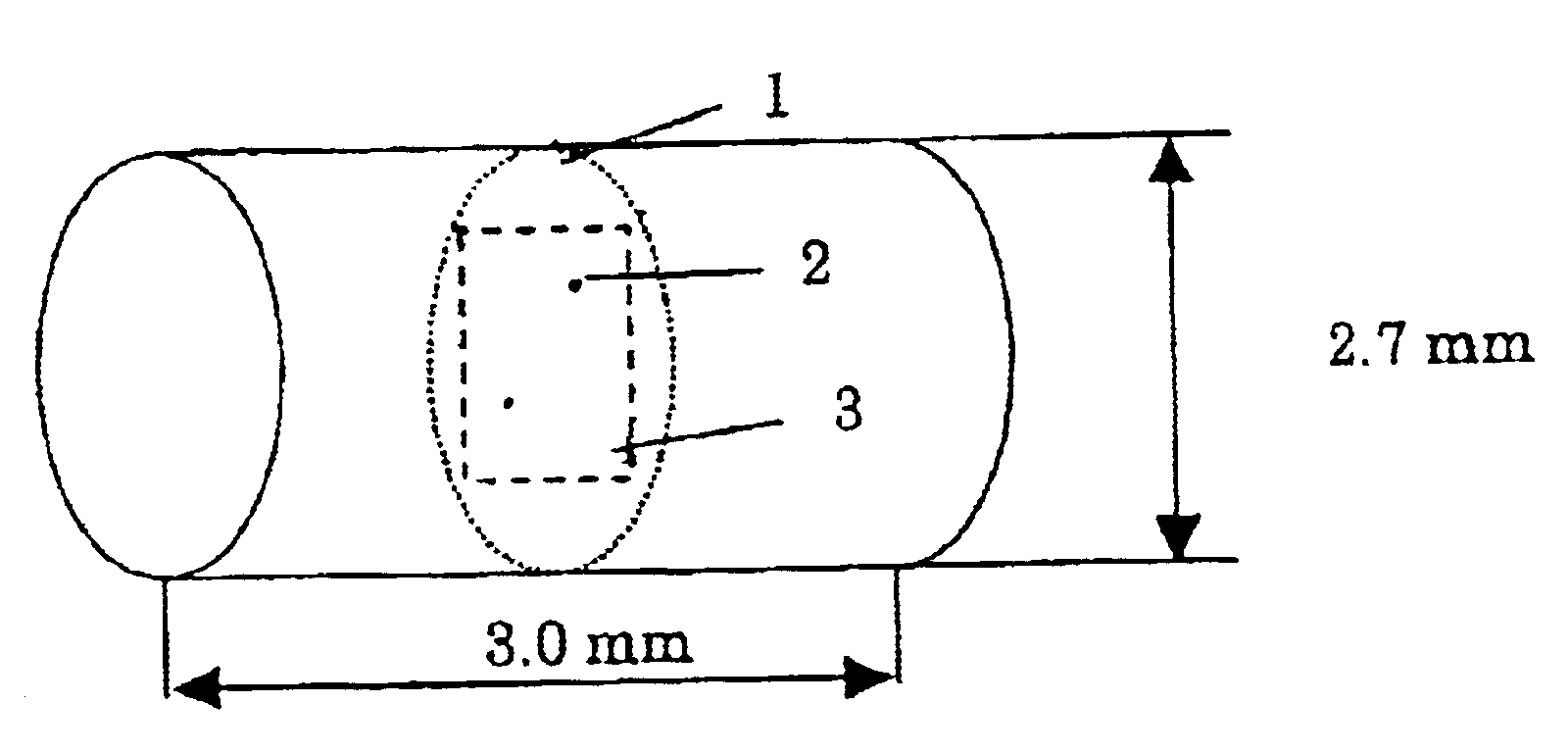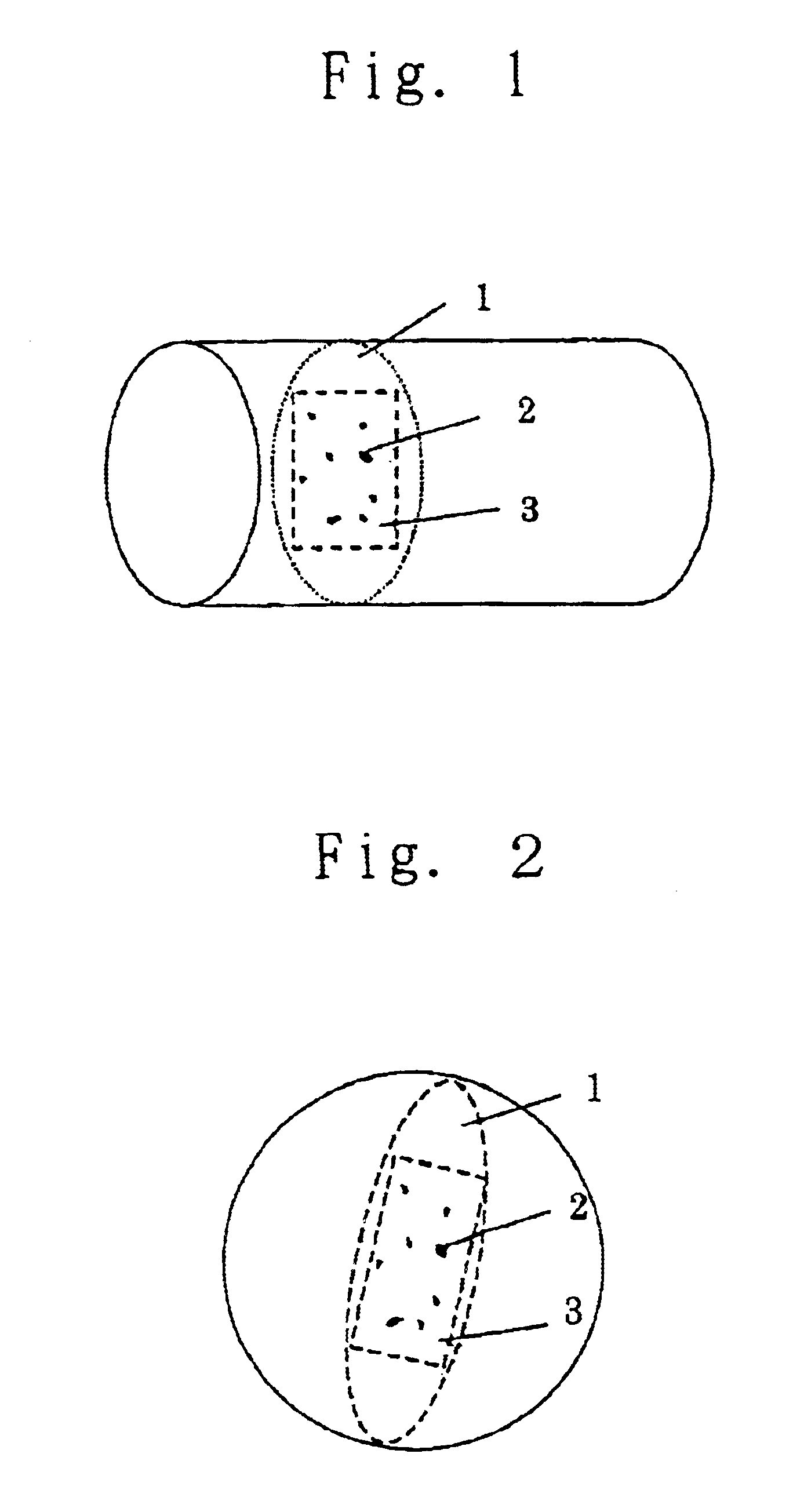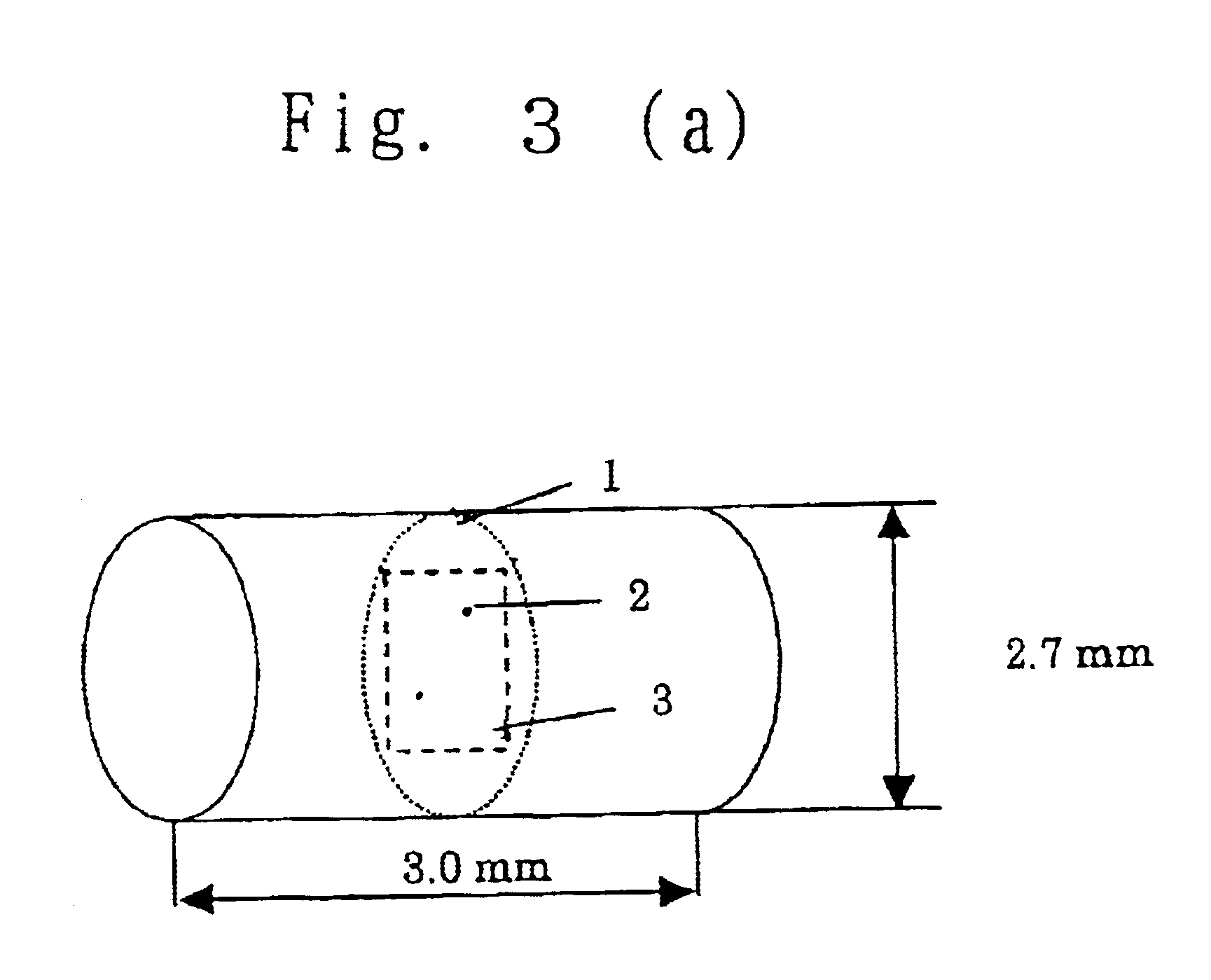Conductive masterbatch and conductive resin composition
a technology of conductive resin and masterbatch, which is applied in the direction of conductive materials, non-conductive materials with dispersed conductive materials, tyre parts, etc., can solve the problems of poor moldability of polyphenylene ether, unsatisfactory impact resistance of resin composition, and high cost of conductive masterbatch and conductive resin composition, etc., to achieve efficient production
- Summary
- Abstract
- Description
- Claims
- Application Information
AI Technical Summary
Benefits of technology
Problems solved by technology
Method used
Image
Examples
example 1
[0238]A conductive masterbatch comprising polyamide 6 and conductive carbon black (polyamide 6 / conductive carbon black masterbatch) which is in the form of pellets (master pellets) having a low surface luster was produced in substantially the same manner as in Comparative Example 1, except that the design of the screws of the twin-screw extruder (ZSX-25, manufactured and sold by Krupp Werner & Pfleiderer GmbH, Germany) (used for melt-kneading 92 parts by weight of polyamide 6 and 8 parts by weight of conductive carbon black at a cylinder temperature of 270° C.) was changed. Specifically, the production of the masterbatch was conducted while controlling the melt-kneading conditions (i.e., the rotation rate of the screws, extrusion rate and the like) to obtain master pellets having a surface roughness (average value of the central line average roughness (Ra) values) of 0.3 μm or more (the melt-kneading conditions employed in Example 1 were mild as compared to those employed in Compara...
examples 2 to 4
[0249]In each of Examples 2 to 4, a conductive masterbatch in the form of pallets (master pellets) having a low surface luster was produced in substantially the same manner as in Comparative Example 2, except that the design of the screws of the twin-screw extruder (used for melt-kneading 90 parts by weight of polyamide 6 and 10 parts by weight of conductive carbon black at a cylinder temperature of 270° C.) was changed. Specifically, the production of the masterbatch was conducted while controlling the melt-kneading conditions (the rotation rate of the screws, the extrusion rate and the like) to obtain master pellets having a surface roughness (average value of the central line average roughness (Ra) values) of 0.3 μm or more (the melt-kneading conditions employed in each of Examples 2 to 4 were mild as compared to those employed in Comparative Example 2). (The masterbatches produced in Examples 2, 3 and 4 are referred to as “PA / KB-MB4”, “PA / KB-MB5” and “PA / KB-MB6”, respectively). ...
example 5
[0251]A resin composition was produced in substantially the same manner as in Comparative Example 3, except that masterbatch PA / KB-MB5 was fed to the extruder in an amount shown in Table 2 from the 2nd downstream-side inlet, instead of the conductive carbon black. The properties of the resin composition are shown in Table 2, together with the formulation of the resin composition.
[0252]
TABLE 2Feeding inletComponentsComp.Comp.Comp.of theof the resinEx. 2Ex. 3Ex. 4Ex. 2Ex. 3Ex. 4Ex. 5ExtrudercompositionUnitsFormulation of the resin compositionInlet providedPPE-1Parts20202020202020at an upstreamM-PPEby14141414141414portion of theSEBS-1weight8.58.58.58.58.58.58.5extruderSEBS-22.52.52.52.52.52.52.51st downstream-PA6636533636363636side inletPA / KB-MB319PA / KB-MB419PA / KB-MB519PA / KB-MB6192nd downsteam-PA / KB-MB319side inletPA / KB-MB519KB1.9Results of measurements(with respect to each of masterbatches PA / KB-MB3, PA / KB-MB4, PA / KB-MB5 and PA / KB-MB6)Number of agglomerated—0—0194444particles (major a...
PUM
| Property | Measurement | Unit |
|---|---|---|
| Length | aaaaa | aaaaa |
| Length | aaaaa | aaaaa |
| Percent by mass | aaaaa | aaaaa |
Abstract
Description
Claims
Application Information
 Login to View More
Login to View More - R&D
- Intellectual Property
- Life Sciences
- Materials
- Tech Scout
- Unparalleled Data Quality
- Higher Quality Content
- 60% Fewer Hallucinations
Browse by: Latest US Patents, China's latest patents, Technical Efficacy Thesaurus, Application Domain, Technology Topic, Popular Technical Reports.
© 2025 PatSnap. All rights reserved.Legal|Privacy policy|Modern Slavery Act Transparency Statement|Sitemap|About US| Contact US: help@patsnap.com



